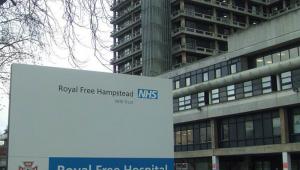The funding boost, which forms part of a £8bn funding commitment made by Chancellor George Osborne at the Spending Review, is part of a plan to support NHS England’s Five Year Forward View reform plan.
Health secretary Jeremy Hunt announced today that £1.8bn of the frontloaded support for 2016/17 would be earmarked to help hospital trusts reduce their deficits and allow them to focus on transforming services. The cash announcement comes on the day the National Audit Office warned that worsening finances of NHS providers threatened the service’s sustainability, after providers announced a £1.6bn deficit for the first six months of the financial year.
The money will be allocated according to a series of strict conditions, intended to improve finances and put transformation plans, including for better evening and weekend services, in place.
These “non-negotiable conditions” set out by the Department of Health, NHS England and NHS Improvement include agreement of a “strong and measurable recovery plan” that shows how the trust will reduce deficits and break even within a reasonable timeframe.
Trusts will also need to develop and report on plans to achieve the efficiency savings set out by Lord Carter as part of his review into NHS productivity, as well as making progress to reduce agency spend.
Agreements also need to be reached on a “credible plan” for maintaining delivery of core standards for patients, including the four-hour target for accident and emergency admissions, and the 18-week referral to treatment standard.
A proportion of funding will be distributed to all providers of emergency care, linked to demonstrating initial progress against these conditions. A second element will be used to target providers that could deliver additional efficiencies and improvements.
Hunt said the government was committed to the values of the NHS. “We’re offering trusts help to improve their financial position and transform services for patients based on that planned investment, subject to strict conditions. This will allow hospitals to focus their efforts on making the NHS a truly seven-day service, offering the same excellent world-class care every day of the week.”
NHS England chief executive Simon Stevens said it was right to use “a meaningful chunk” of the funding increase to “help get hospitals back on their feet”.
He added: “As that happens, we need to accelerate care redesign and free up a rising share of the NHS’s new investment for critical priorities such as primary care, mental health and cancer services. The NHS’s five-year funding allocations being agreed at the NHS England public board meeting tomorrow aim to do just that.”
Jim Mackey, the chief executive designate of NHS Improvement, who last week said that hospital finances would need to improve in 2016/17, said this funding gives NHS providers the possibility of balancing the books and deliver good emergency care performance.
“We will be working with them to ensure they get back to the levels of performance the NHS should expect and its patients deserve. Alongside this, trusts need to look at longer term transformations to meet changing patient needs over the coming years.”
Responding to the announcement, NHS Confederation chief executive Rob Webster said the service now needed to develop “a roadmap for recovery”. He added: “The test for a transformation fund will be whether it allows the NHS to invest in new models of care, while ensuring current services are sustained. This is a tough challenge and front-loaded funding agreed by the Treasury gives the NHS a small window to do this over the next few years.”




















